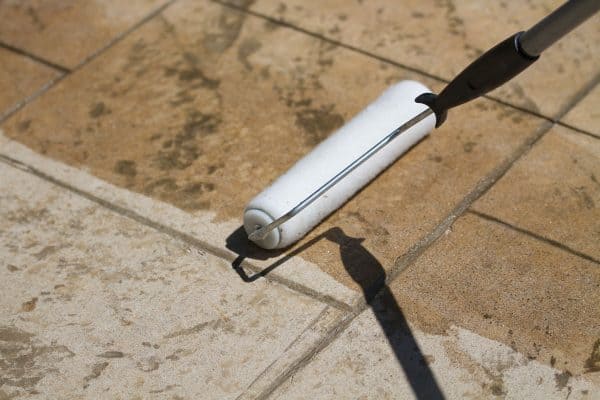Disclosure: We may get commissions for purchases made through links in this post.
Paver maintenance is a crucial point in choosing what type of material you'll be using in your home. Cambridge pavers are a famous brand in the hardscaping world but do they stain? And if so how hard is it to remove stains? Well, we have found the answers for you in this post.
All types of pavers will stain, even Cambridge pavers. But if installed properly and under careful maintenance, the surface can last decades without losing or altering its coloring.
Do not get discouraged in using pavers for your home, among the rocks used in hardscaping Cambridge pavers are one of the easiest to maintain and very durable. Read on to find out how to get rid of the most common stains that affect your paver surface.
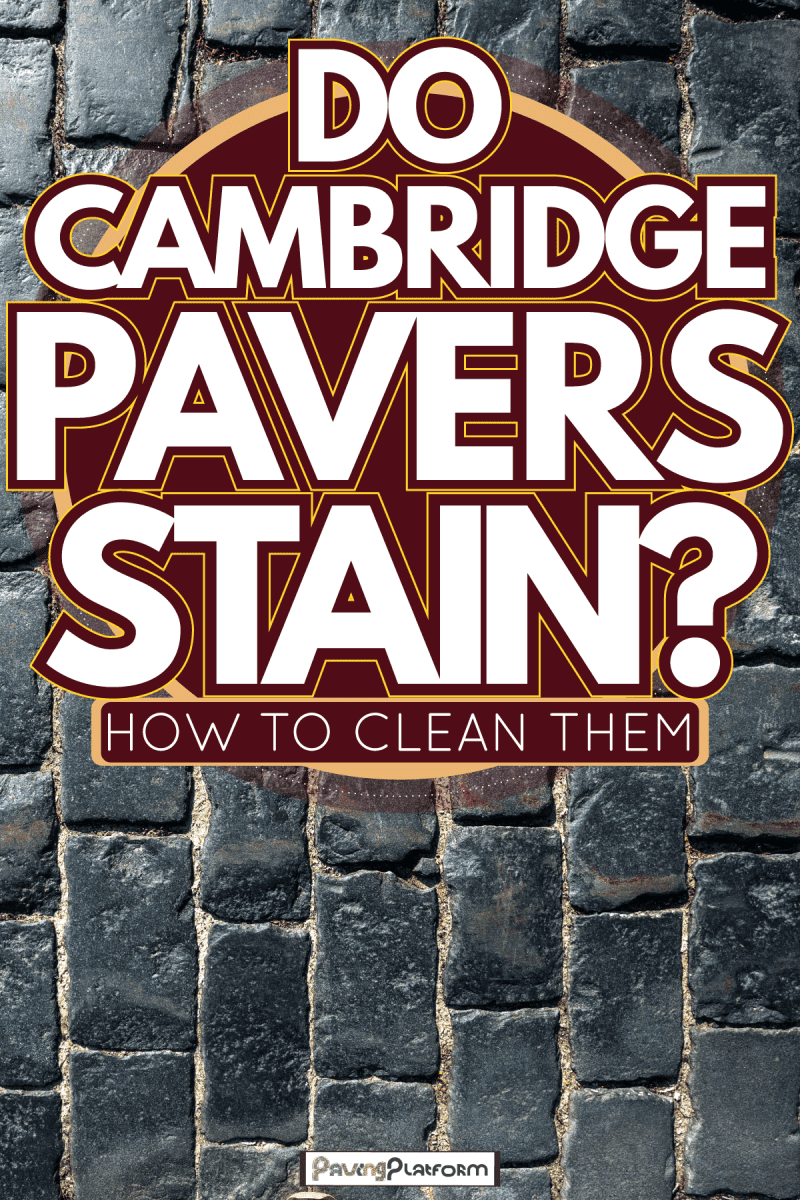
How To Remove Stains From Pavers
Cambridge pavers, brick, or flagstones are great choices for driveways, walkways, and even pool decks. Yet, aside from exposure to the elements, they are also prone to all kinds of substances that can stain, here's a quick guide on how to remove them.
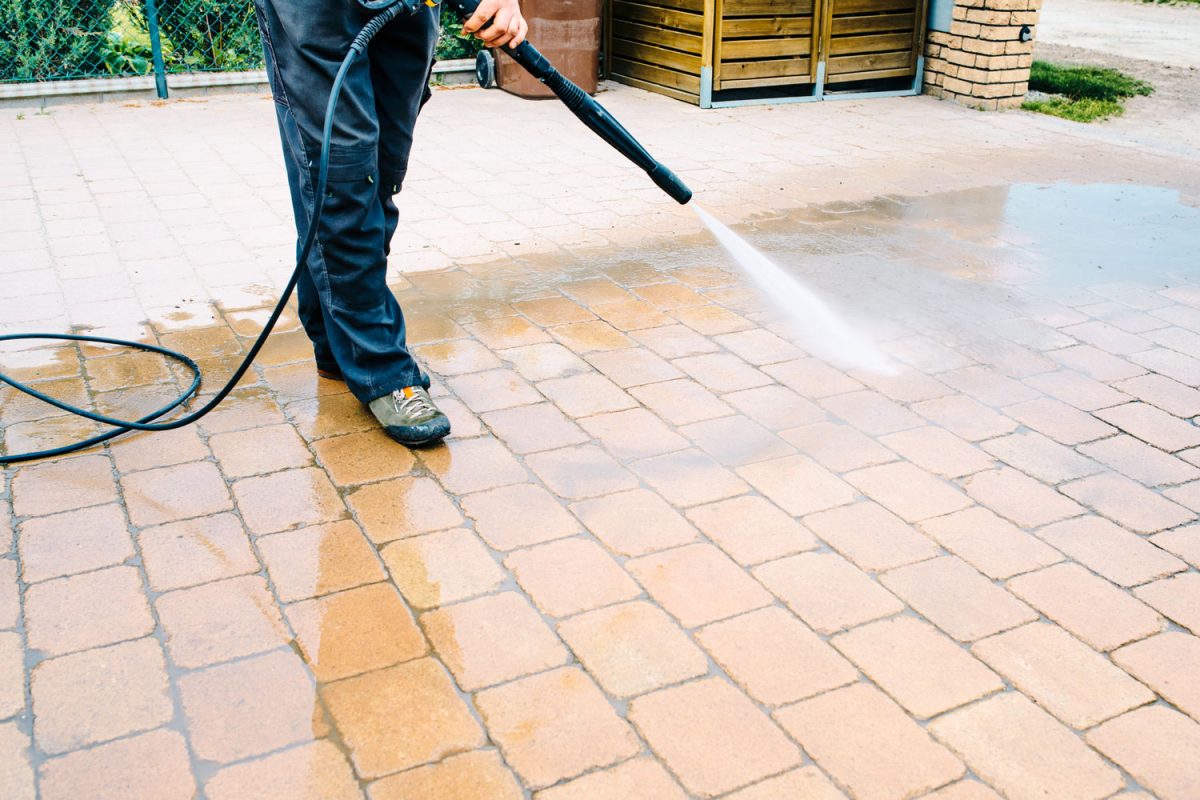
Blood, Candy, Ketchup, and Other Food Substances
Backyard barbecues are the best, but you cannot avoid the mess. To remove liquid stains, grease stains, or other food stains on your pavers all you have to do is soak the stones in dishwashing soap for 20-30 minutes, scrub and rinse with warm water. You can also use a solution of Oxyclean and water, soak the stain for 15 minutes, scrub then rinse.
Leaf Stains
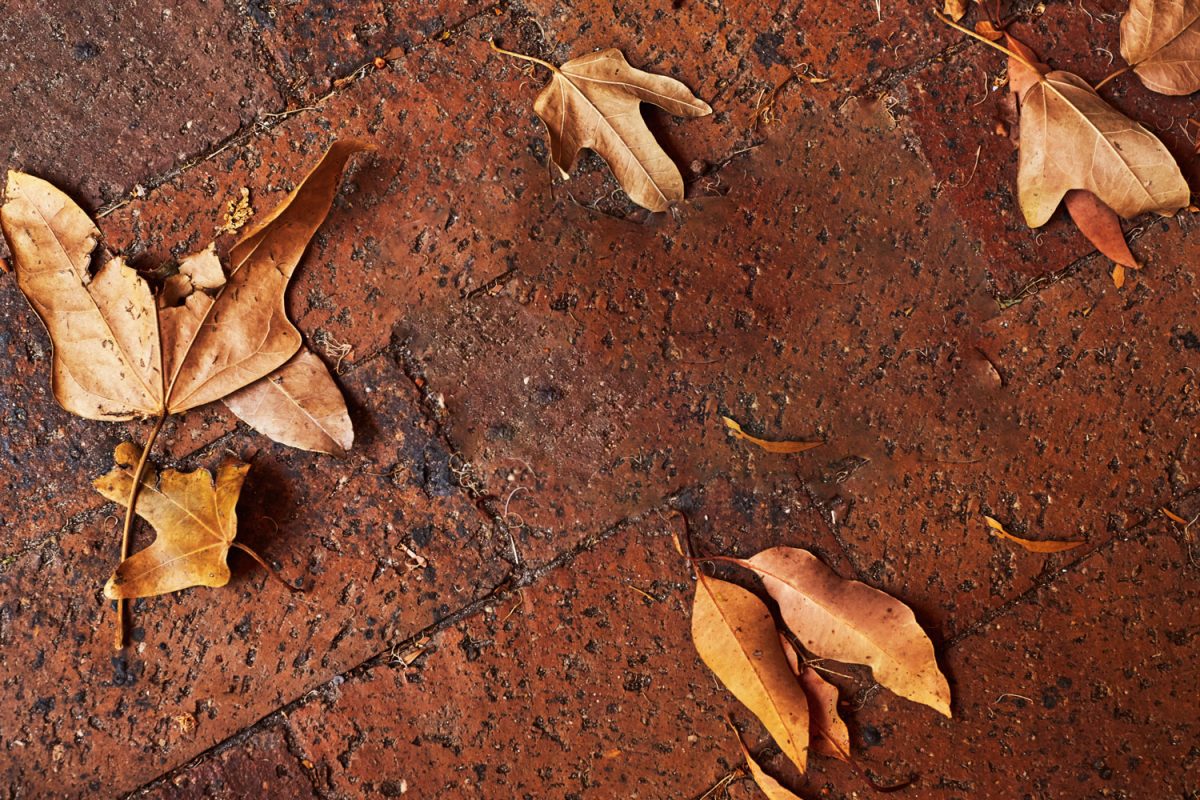
Landscaping is an essential part of your yard design. Trees and other plants complete the look but they do cause stains on your pavers. You can remove leaf stains from pavers using regular bleach, follow the dilution instructions on the bottle which is usually 2-3 tablespoons of bleach per gallon of water. Don't forget to test the mixture on a small spot on your pavers, let it sit for 30 minutes, scrub with a brush and wash away.
Mulch and Tobacco Stains
Other common culprits of paver stains are mulch and tobacco. It's also fairly easy to remove so don't fret, you just need to mix four scoops of Oxyclean into a gallon of hot water, spray and let it soak for 15 minutes before brushing and washing away with water.
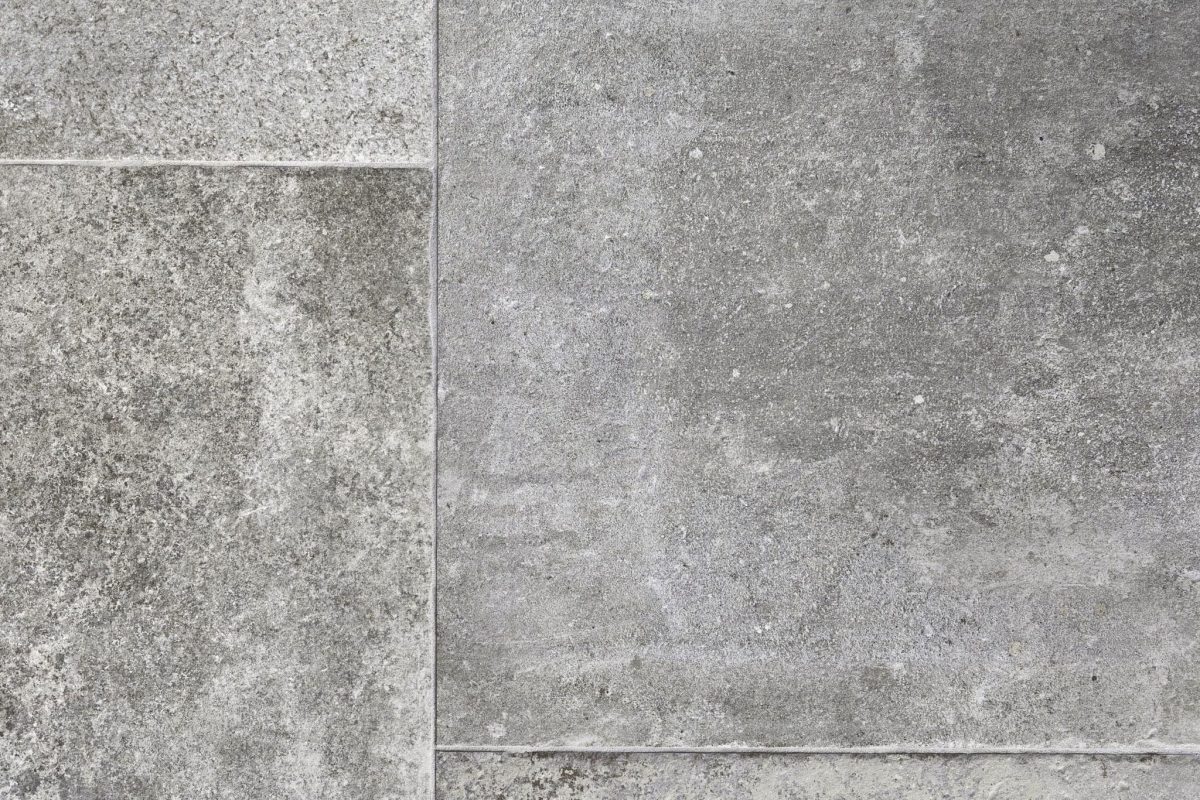
Mold, Mildew, and Moss
A bit of green does lend a certain charm to your pavers but before you know it, they'd have overtaken your walkway and turned it into a slipping hazard! Commercial chemicals are available for ridding your pavers with moss, but vinegar is a readily available solution. Spray on white vinegar to the area and wait for an hour before scrubbing, wash off with your garden hose.
Paint
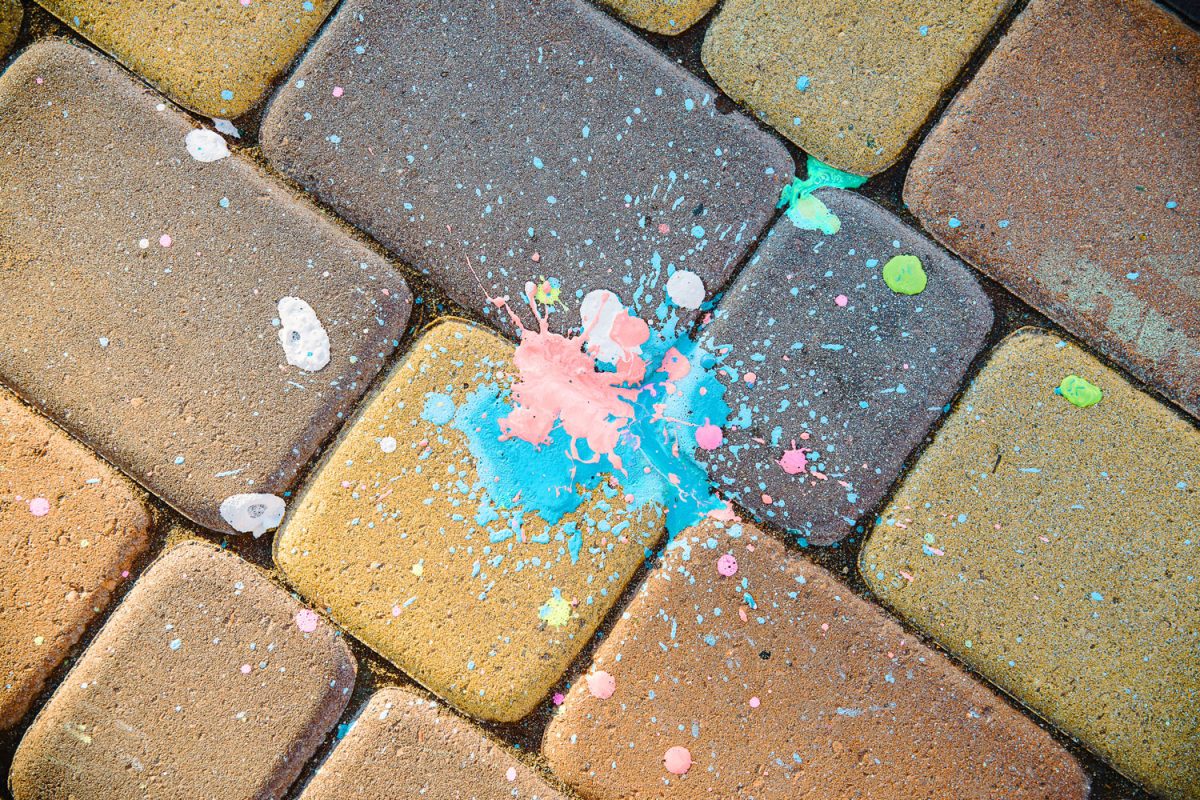
You can avoid paint stains by taking precautionary measures like covering the area before painting. In case there are accidental spills here's what you have to do.
Wet Paint
Clean up the area immediately by blotting it with a rug scrap or towels. Do not wipe, this will smear the paint causing to stain more areas. Soak the area with hot water and scouring powder, brush away as much paint as you can. You can let the remaining paint stain dry and proceed to the cleaning steps for dried paint.
Dried Paint
If the paint is water-based you can use warm water, a stiff brush, and elbow grease to scrub it off.
For oil-based paint, you can use acetone, paint thinners, or any commercially available paint removers. Apply the paint remover on a small spot first before proceeding to the next step. Let the paint remover sit on the affected area for the allotted time, before scrubbing and washing it away.
You can check out this non-toxic paint remover on Amazon.
Rust Stain
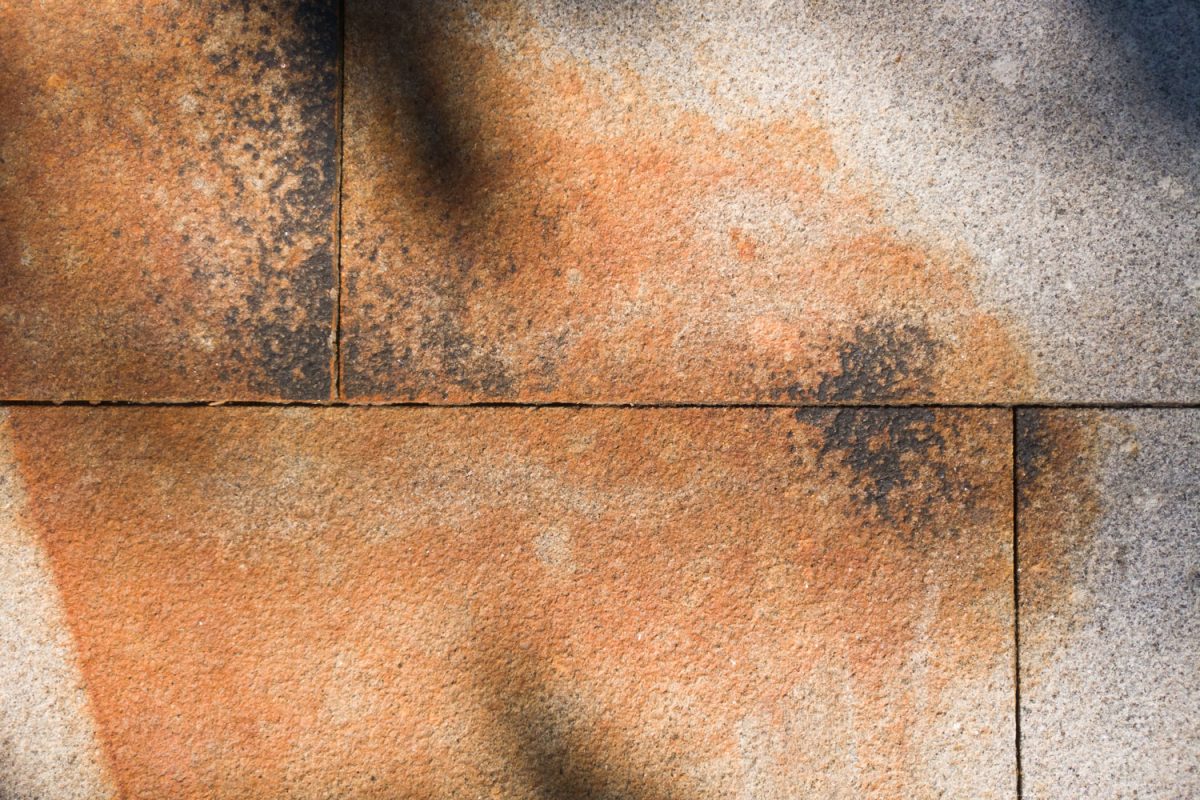
Your fertilizer, metal furniture, or even sprinklers may be causing rust stains on your pavers. They are easy enough to remove using household items that contain acidic properties like vinegar and lemon. The acid reacts with the iron oxide and breaks it down to make it easier for you to brush it off the surface. You may need to repeat this process several times depending on how long you left the stain on the pavers.
Rubber Skid Marks
Tires usually leave unsightly skid marks on your driveway, but they can be easily remedied. Scrub the surface with water, a cleanser, and a stiff brush. There are also removers available on the market, Cambridge paver manufacturers recommend the brand Alliance Gator which you can get here.
What Are Those White Stains On My Pavers
If you have newly installed pavers you might have noticed white streaks on some parts of it after a couple of days. This substance is efflorescence and is the result of a natural process that occurs as the cement hydrates and brings water-soluble salts into the surface. It does not mean that there is something wrong with your pavers structurally but rather aesthetically you might have to deal with it for at least a year.
Can I Remove White Haze from Pavers
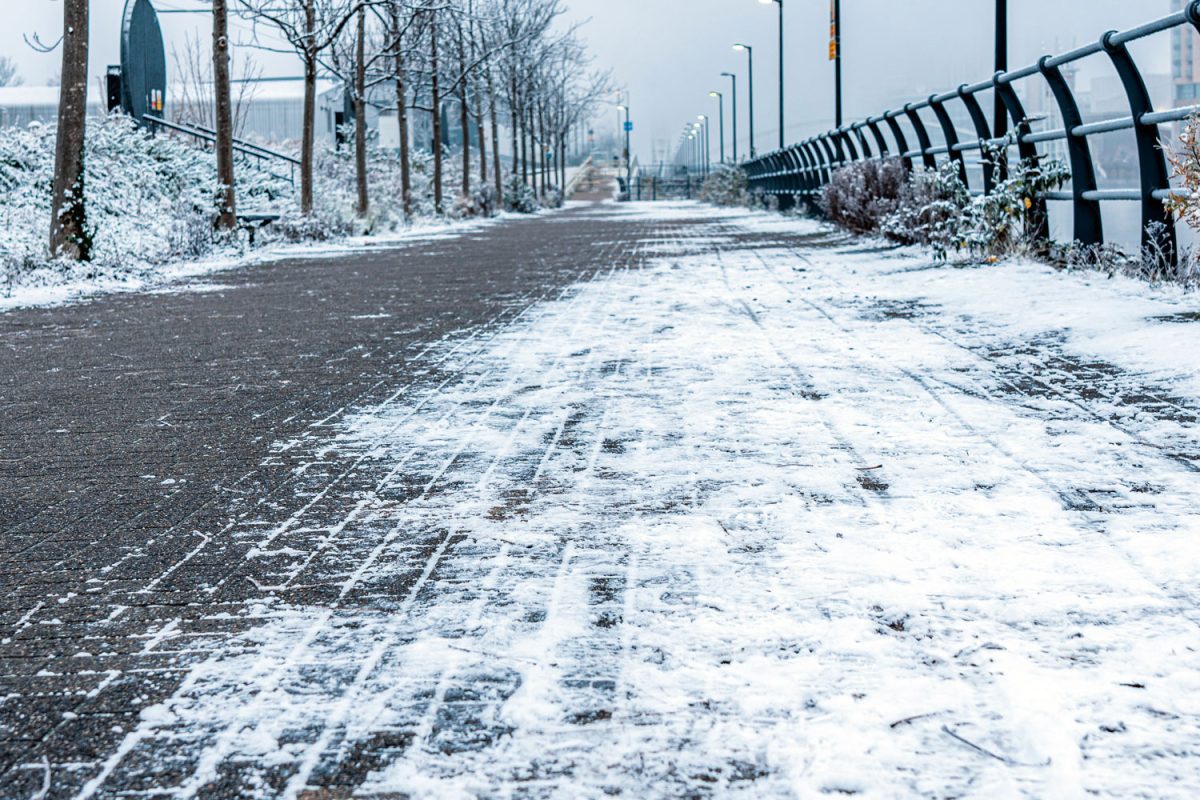
The white haze will usually disappear on its own once the cement is completely dehydrated, however since it is not recommended to seal your pavers until after efflorescence is gone you might opt to get rid of it on your own rather than waiting it out.
You can try scrubbing off efflorescence with mild detergent and brush, this can yield better results if you act on it early on. Chemical removers are also available but it's best to talk to your contractor or local supplier on what brand would be best to use and the correct application.
Can I Pressure Wash My Pavers
A common question that crops up when discussing cleaning pavers is the use of a pressure washer. The answer is yes, you can use a pressure washer on your pavers. Using one eases the manual labor on your part, but you have to be mindful of using the correct pressure. The ideal pressure for washing away dirt and grime off your pavers is approximately 1000-1500 psi. Any lower may not be useful enough but any higher might damage your pathway.
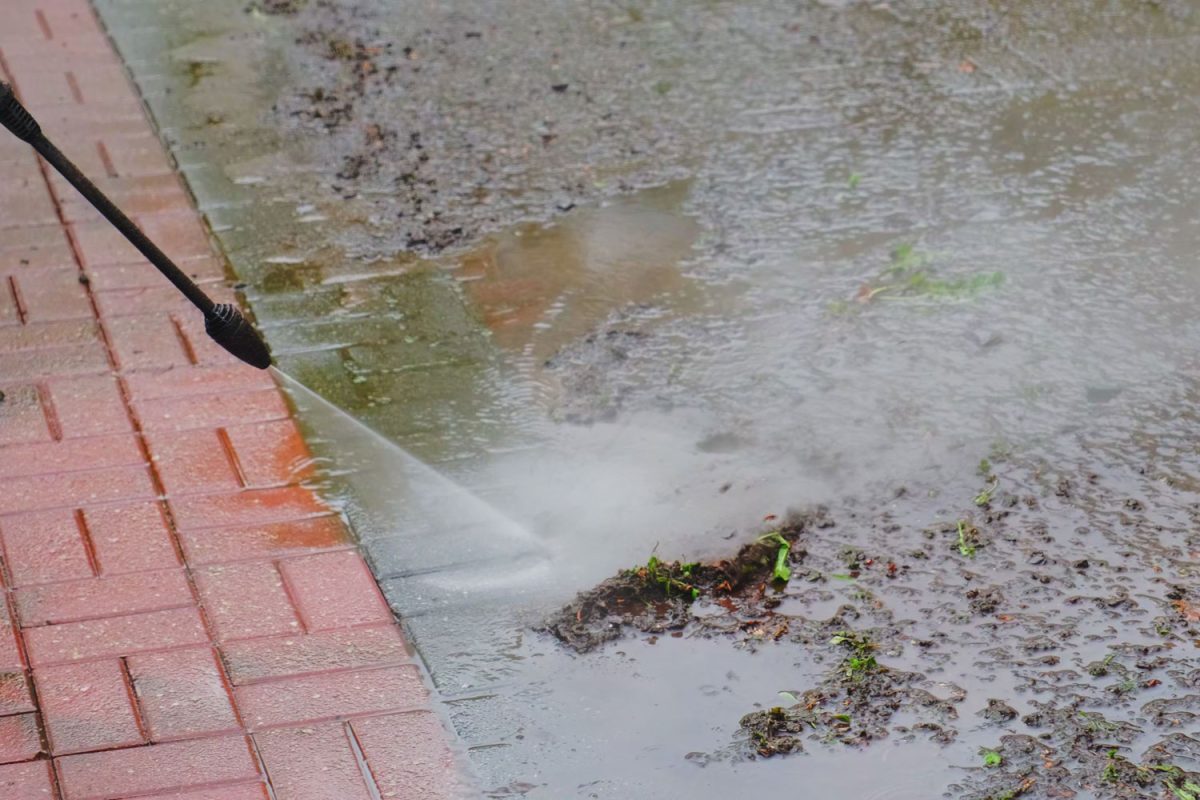
Does Sealing Pavers Prevent Stains
Stains will be more manageable and less worrisome if you seal or re-seal your pavers from time to time. It preserves the color and texture of the surface and at the same time protects it from all kinds of stains. You can do this as a preventive measure every 3-5 years or if you notice any fading from the color of the stones.
Conclusion

In closing, there's no escaping from the care and maintenance of your pavers. You have already invested a lot of money to beautify your home, it's just right to exert a bit of effort into making sure it stays that way. Thanks for reading, and if you enjoyed this post we have several more topics such as "Can You Use Pavers To Build A Retaining Wall?" and "How Long Do Unilock Pavers Last? [Including Do They Fade]."


![Vibrant Red Paver Stone Path, Can You Spray Paver Sealer? [How To Apply It]](https://pavingplatform.com/wp-content/uploads/2022/04/Vibrant-Red-Paver-Stone-Path-600x400.jpg)
![Properly laid out red pavers for a garden, Can You Tint Paver Sealer? [And How To]](https://pavingplatform.com/wp-content/uploads/2022/04/Properly-laid-out-red-pavers-for-a-garden-600x400.jpg)
